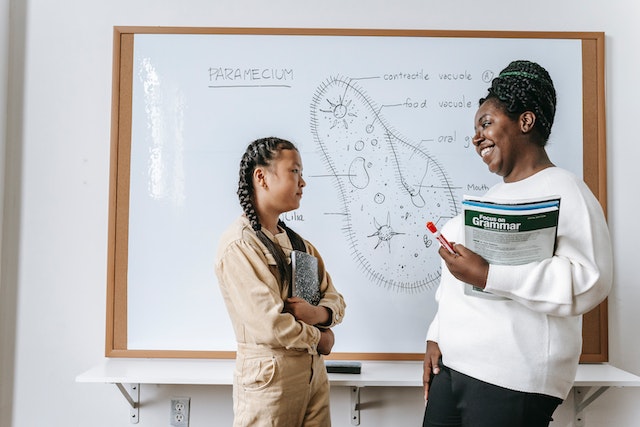MEANING
Adjectives describe a person or a thing. There are nine parts of speech and out of those, one of them is adjectives. We get to know more about a noun with the help of adjectives. It ‘describes’ or ‘modifies’ a noun.
For example, The small kitten was angry. In this example, the adjective is marked in bold and the noun which modifies it is in italics.
POSITION AND FUNCTION
Usually, the adjective comes BEFORE a noun, like:
- A black house
- A blue sky
- A delicious dessert
Sometimes, it also happens that the adjective comes AFTER a verb, like:
- Her bike is black.
- The sky becomes orange.
- The dessert looked delicious.
The adjective also has the power to modify pronouns, like:
- The drum was empty.
- She thought it seemed weird.
- Those are not costly.
Remember that we can often use two or more adjectives together.
TYPES OF ADJECTIVES
COMPARATIVE ADJECTIVES
Just as the name says, when we talk about two things, we usually ‘compare’ them. It tells us whether they are the same or different. We use the Comparative adjectives to tell about the differences. Comparative adjectives are used while talking about two things, because comparison takes place between two things.
Comparative adjectives can be formed in two ways;
- For short adjectives, you can add “-er”
- For long adjectives, you can use “more”
Usually, comparative adjectives are followed by ‘than’.
For example:
- Is Marathi more difficult than Hindi?
- India is big but the USA is bigger.
- She needs to have a better cell phone.
For example: Silk is costlier than other fabrics.
Over here, we are talking about many fabrics but we are still comparing ‘silk fabric’ with other fabrics. We are still comparing one thing to another.
SUPERLATIVE ADJECTIVES
We talk about the highest degree of quality in a superlative adjective. Superlative adjectives talk about the extreme quality of a particular thing in a group of things. We can use Superlative Adjectives when we want to talk about three or more things.
Just like comparative adjectives, superlative adjectives can be formed in two ways;
- For short adjectives: add “-est”
- For long adjectives: use “most”
Usually, we also add ‘the’ in the beginning.
For example:
- David is the tallest of all in the class.
- Silk fabric is the costliest of all the fabrics.
- Lions are the wildest animals.
Remember that when we are comparing one thing with itself, we do not use the word ‘the’.
DESCRIPTIVE ADJECTIVE
Another name for the Descriptive Adjective is Adjectives of Quality. They talk about the quality of a person or a thing.
PROPER ADJECTIVES
Adjectives formed from proper nouns are called Proper Adjectives. They are also known as Adjectives of Quality. Adjectives of Quality answer the question: ‘Of what kind?’
ADJECTIVES OF QUANTITY
The importance of a thing is depicted with the help of adjectives of quantity.
For example:
- I drank some water.
- You have no work to do.
- Take good care of everyone’s health.
NUMERAL ADJECTIVES
Numeral Adjectives are also known as Adjectives of Numbers as they deal with numbers in Adjectives.
DEMONSTRATIVE ADJECTIVES
Demonstrative Adjectives point out to a person or a thing. As the name suggests, Demonstrative Adjectives ‘demonstrate’ something.
Quiz | Adjectives















